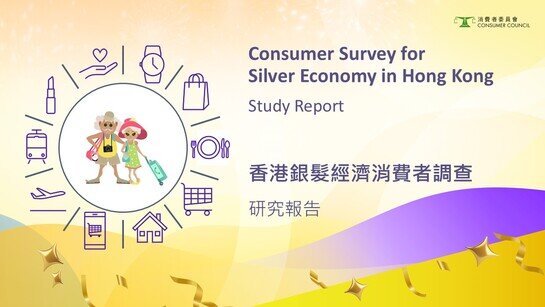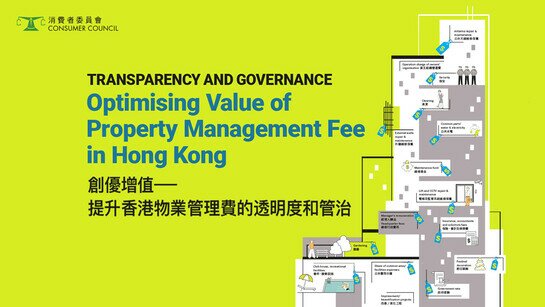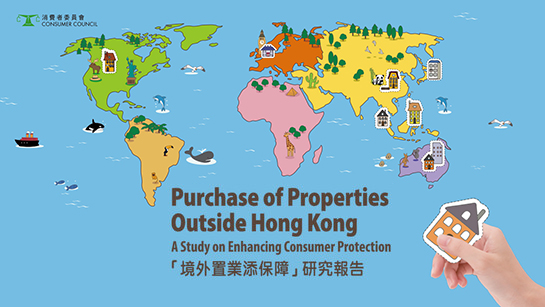- This paper summarizes information provided by some members of the Educational Booksellers' Association (EBA) in a meeting with the Consumer Council, and in a subsequent written submission, regarding a joint announcement of a standard discount to be offered to consumers.
Background
- A joint advertisement was placed in the press on 7 July 1999, run by 22 of EBA's members announcing a uniform 10% discount on secondary textbook prices. In a letter of 15 July, the Council requested EBA to provide more details on the price agreement among its members, to explain their rationale behind the collective arrangement as opposed to free competition (which implies individual rivalry rather than uniform practice) in the sale of textbooks. The members were also asked to illustrate how consumers can benefit from the said arrangement.
- In response to the letter, the EBA members requested a meeting with the Council on 16 July to present their arguments. Views were exchanged in the meeting to enhance a better understanding towards the textbook retail market in general, and the standard discount arrangement in particular. As per the Council's request, the EBA members followed their oral presentation with a written submission, which reached the Council on 9 August 1999.
Standard Discount Arrangement
- The EBA members submitted that the exercise was a joint venture by them to offer a uniform 10% discount, entirely out of good will. The members explained that the reason behind the joint action in the announcement was affordability, as it was more economical to share the advertising expenses among participating members.
- The 10% rate was arrived at from bottom-line considerations by some members having similar operating costs. Prevailing in the market were 5 levels of retail discounts, ranging from 5% to 15%, which were being offered by the remaining EBA members (not part of the 22 member joint venture) and non EBA members. That fact, they claimed, debunked the suspicion towards a standard industry-wide discount arrangement. EBA also affirmed to the Council that EBA's Memorandum and Articles of Association (section 3(c) of the mission statement) spelt out EBA's opposition to any form of monopolization.
- The Council opined that the advertisement of 7 July fuelled speculation on a standardized discount rate set by EBA. Even if the speculation was untrue, EBA had to take positive steps to clarify its position. EBA was advised to resolve any misunderstanding by way of written submission to the Council. That submission would form a basis for reference in case of similar allegations in future.
OVERVIEW OF THE TEXTBOOK RETAIL MARKET
- The EBA members stated that booksellers were passive in the supply chain, where publishers had control of both marketing and pricing. The discount rate generally offered by publishers to booksellers was only 20% off list prices, and on some occasions it was even less. Giving out 10% discount in retailing, booksellers' gross margin was at most 10% to cover operating costs.
- In the case of textbooks, there was neither volume discount nor consignment, as opposed to books of general categories. Textbook retailers had to face seasonal demands, bear slow-moving stocks and risk dead stocks. Booksellers' cost of carry was further increased by the need to source from a number of publishers as there were often over 10 to 20 recommended textbooks per subject per level.
- In the present economic downturn, the EBA members submitted that publishers would withhold supply from those booksellers perceived to have cashflow problems. Particularly vulnerable were those viewed by publishers as being unable to make ends meet (such as those operating on very slim gross margins due to high retail discounts). They added also that some booksellers cherry-picked fast-moving items to reduce the cost of carry, thereby enabling them to afford a higher discount. That explained why some booksellers did not carry the full line of textbooks.
- On printing of textbook lists, the EBA members commented that it was a service rendered free to schools, but could in no way influence the market demand. In textbook selection, subject panels recommended shortlists of textbooks for the schools' eventual choice. The shortlists might, to some extent, be influenced by publishers, but not by booksellers. The textbook retail market was so unprofitable that for two decades there was no newcomer willing to invest.
- In response to the suggestion of a shrinking retail market, the Council opined that it was sometimes unavoidable that the process of free competition would eliminate inefficient traders, and booksellers had to cut margins to stay in business. Retail of textbooks might eventually evolve to direct sales in schools or other modes of delivery.
- The EBA members further submitted that it could neither exercise any control on the publishers' supply, nor influence the market demand. With a current membership of about 40, from around 100 booksellers in Hong Kong, the EBA members held that it was only an interest group to promote an open forum for booksellers, having no sanctioning power to discipline members.
- When asked by the Council to give an estimate of EBA's market coverage in terms of members' turnover, the members were unable to do so because of lack of research by the EBA. Nevertheless, the Council was of the view that EBA's market coverage was not small, as EBA was the only booksellers' association in Hong Kong comprising the major booksellers.
- The presence of influential booksellers among the 22 members, plus a certain degree of vertical integration among them, suggests the group could have a high degree of market power. An influential group of association members acting in concert could have strong negotiating power with wholesalers, be in a position to sanction non compliance with agreed positions among members, and influence retail terms to the detriment of consumers. However, apart from the advertising joint venture offering the standard 10% discount, there is no indication that the group has agreed on other matters that could detrimentally affect competition in the textbook market.
- Throughout the meeting, the Council drew the EBA members' attention to the Statement on Competition Policy issued by the Government in May 1998 as the rationale for questioning their joint announcement. The Council emphasized that it was merely acting on information that pointed to specific illustrations of potentially restrictive practices, that were appropriate for scrutiny.
ASSESSMENT OF THE CONDUCT
- The Council has a role under the Government's Statement on Competition Policy to, amongst other things, 'monitor and review business practices in sectors prone to anti-competition behavior'. Price fixing agreements between competitors have been identified in the Statement as practices that warrant scrutiny to assess whether economic efficiency has been impaired.
- Agreements between competitors to fix, control or maintain prices are deemed in some jurisdictions with general competition law to have the purpose or effect of substantially lessening competition, without requiring further analysis to determine whether there has actually been that effect. This reflects the seriousness that most jurisdictions have for this practice. The qualifications that usually arise are for joint ventures where the agreement on price is for the purpose of increasing efficiencies in the purchase of goods or services for re-supply (i.e. increasing economies of scale) or where the agreement is on a recommended price that actually promotes competition.
- The response from the group of EBA members indicates that neither of these qualifications applies. The joint advertising effort was not an aggregation of assets to increase efficiencies in the market that would promote competition. A pro-competitive joint venture in these circumstances would be the joint purchase of books by a group that enabled volume discounts to be achieved, which would result in lower prices for consumers. Neither was the joint effort aimed at recommending a price for the booksellers to follow. Recommended price lists may in some limited circumstances have minimal effect on competition. For example, by assisting market participants in retailing sectors, where a large number of different products with highly flexible costs and durability are sold, and they require a form of marketing assistance to easily calculate a margin and determine a retail price. For example, a convenience store or a kiosk.
- The EBA members consider their actions do not impair economic efficiency and have pointed out that the effect of the agreement has resulted in an increased discount for consumers. However, it seems reasonable to expect that in absence of the agreement, the prices offered by some of those members could be lower, given the differences in costs of operation and the pressure that unilateral marketplace rivalry could bring to bear. It is a 'competitive' price that the Council assumes the Government would prefer to be an outcome of open and fair markets, when it raises the possibility of economic efficiency being impaired through price fixing (Paragraph 6(a) of the Statement on Competition Policy ).
- In addition, the issue of consumer redress remains unresolved because most consumers who would have read the joint announcement would take 10% as the standard discount available in the market. They would not be aware from reading the announcement that they can either bargain with booksellers, or that there are others in the marketplace who offer a higher discount.
- It may be argued that the other booksellers who were not party to the joint announcement and who offer larger discounts can make their own announcements, promoting their particular discounts. However, it would seem unlikely that they would be able to afford the substantial costs of a full page announcement in a major daily newspaper, as has been possible by the combined action of the 22 EBA members. It was acknowledged by the members that they could not afford an announcement on that scale by themselves. The joint announcement lowered their costs in promoting the agreed discount which, as they have admitted, is not the most competitive in the market. Therefore, the practical effect of the combined action between those competitors has been to give them an unfair advantage over other more efficient competitors, i.e. those that can supply at a lower price. The unfair advantage arises because the more efficient competitors either:
- cannot match the combined financial resources of their less efficient competitors and pay for a similar major announcement in a daily newspaper; or
- the cost of paying for such an announcement would increase their operating costs and deprive them of their competitive advantage and their ability to pass on lower prices to consumers.
- This scenario is in effect raising rivals' costs through the exercise of market power, brought into existence through group action. Such an outcome would seem to clearly impair economic efficiency.
SUMMARY
- The Council has studied this matter in view of its role under the Statement on Competition policy to review and monitor business practices in sectors which appear to be prone to anti-competition behaviour. In its study on 'Market Practice in the Textbook Industry' of 30 March 1999, the Council recommended that as it appeared there was an implicit standard discount rate in the textbook retail market at the time, the attention of the Educational Booksellers' Association should be drawn to the Government's May 1998 Statement on Competition Policy . The Statement made reference to conduct which was similar to that apparently engaged in by members of the EBA.
- The Council also forwarded a copy of its Benchmark Code of Practice to the association drawing their attention to a principle in the Benchmark Code that suggests:
"Members who engage in practices as identified in the Government's Statement, should be required to make the practices subject to scrutiny, thereby enabling both consumers and competitors to gauge whether the practices limit market accessibility or contestability, impair economic efficiency or free trade, and are not in the overall interest of Hong Kong."
- The Council has undertaken the above examination to ascertain whether in its opinion the agreement by the 22 members of the EBA is not in the overall interests of Hong Kong consumers. While the increased discount by those members is undoubtedly in the interests of consumers and the Council welcomes the increased discount, the manner in which the increase came about, and the negative implication for maintaining competitive rivalry between individual retailers in the textbook market is not. As such the Council expresses its concern that the agreement, when seen in this light, could work to distort the operation of the market and may impair economic efficiency. The Council encourages true free markets to ensure economic efficiency.











